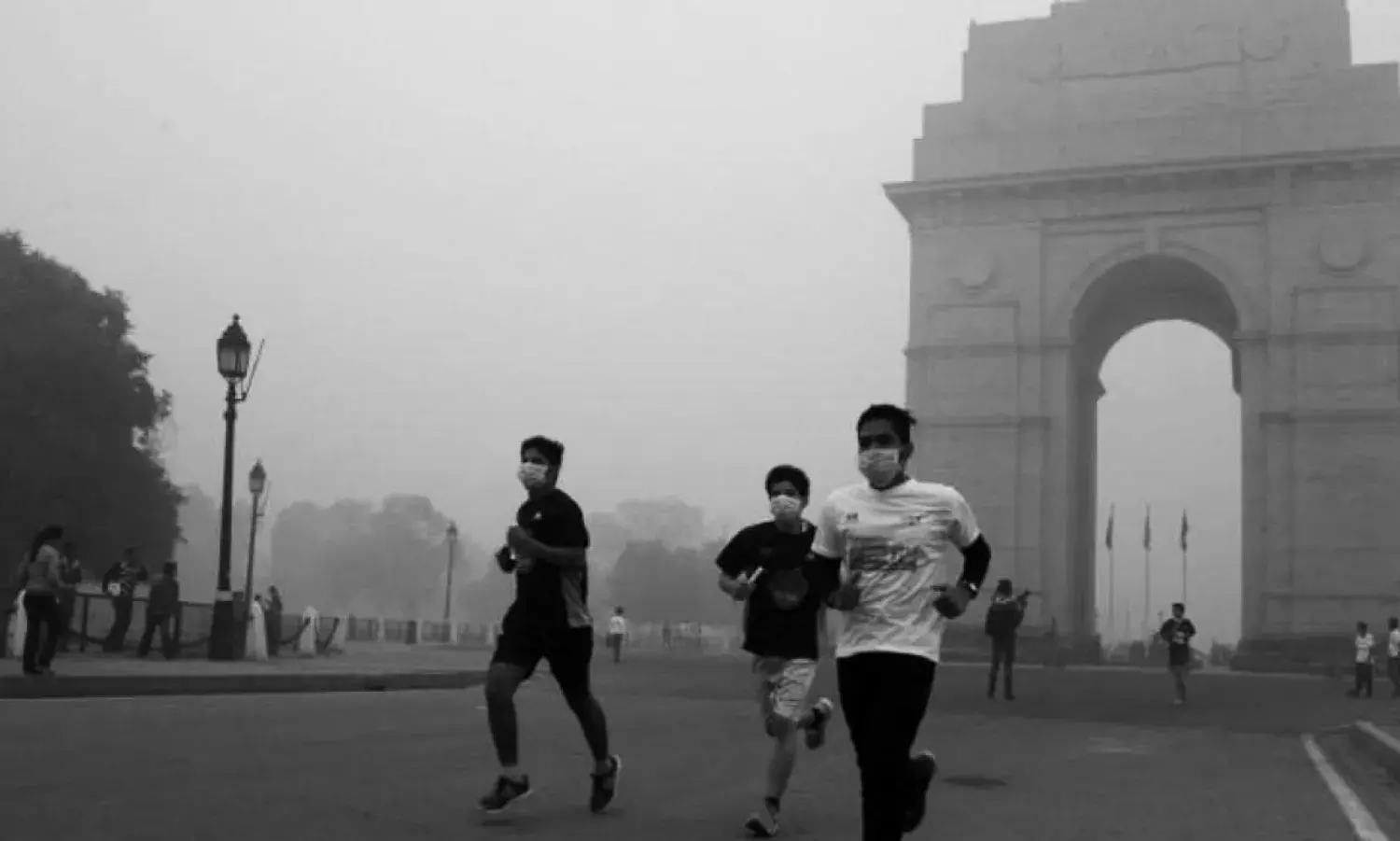Here’s How Much Shorter Your Life Will Be Thanks To Toxic Air
Air pollution is shortening our lives, by how much depends on where you live;

NEW DELHI: It’s that time of the year again. With Diwali less than a week away, a toxic fog has begun to creep over Delhi. A quick peek out of the window reveals a city covered in haze -- almost as if an unsightly Instagram filter was slapped all over it. Children make their way to school in masks, the elderly are advised to stay indoors, hospitals are filled with patients complaining of aching throats -- or worse, increasing cases of asthma and bronchitis.
The advisories accompanying the smog are indicative of the gravity of the situation. The Central Pollution Control Board says you should avoid strenuous activity outside. The System of Air Quality and Weather Forecasting And Research says you should go for shorter walks and avoid running or jogging outdoors; you should keep your windows closed when indoors; and you should wear masks when stepping out.
This is the state of India’s capital. And while the headlines focus on New Delhi, the smoggy Instagram filter has also found favour in other parts of the country. Agra, Lucknow, Varanasi; in fact, India can boast of nine of the world’s ten most polluted cities. Pollution is so integral to peoples lives, that as the rates of pollution related health problems increase, the country’s elite take to “pollution protection” sunscreens, serums and shampoos.
India is in the throes of a pollution crisis, but India is not alone. A recent report by the United Nations Environment Program correctly says that toxic air is a global problem; it kills seven million people each year -- 4 million of these deaths occur in the Asia-Pacific region. Currently, about 4 billion people – 92 per cent of Asia and the Pacific’s population – are exposed to levels of air pollution that pose a significant risk to their health.
“It is an unfortunate fact that breathing clean air, the most basic of human needs, has become a luxury in many parts of the world. But there are numerous tried and tested solutions that we can put in place now to solve this problem. Implementing these air quality measures is not only good for health and the environment, it can also boost innovation, job creation and economic growth,” says Erik Solheim, head of UN Environment.
Now here’s the most important part: The report details 25 policy and technological measures that will deliver benefits across sectors and help curb pollution. According to the report, effectively implementing the 25 measures would result in a 20% reduction in carbon dioxide and a 45% reduction in methane emissions. In short, the measures may help us lead better, longer, healthier lives.
The measures range from introducing advanced emission standards in industries to promote the use of electric vehicles, from improving public transport to managing agricultural residues, from focusing on renewables for power generation to increasing forest land, from enforcing bans on open burning of household waste to encouraging pre-mining recovery of coal mine gas.
In just a few days, the World Health Organization is holding what is perhaps the first global conference on air pollution and health. WHO director general, Dr. Tedros Adhanom Ghebreyesus, called air pollution the ‘new tobacco’ in an Op-Ed for The Guardian, saying that a smog of complacency pervades the planet over this silent public health emergency.
But air pollution might be even more of a health emergency than tobacco. Nine out of 10 people in the world breathe polluted air. This polluted air is a health risk at every single stage of life. For children, breathing polluted air can cause permanent brain damage. In fact, we are at risk before we are even born -- as exposure to air pollution during pregnancy can damage a developing baby’s vital organs including the brain, heart and lungs and lead to a range of conditions including asthma, heart disease and cancers.
The WHO’s latest estimates show that air pollution is responsible for one-quarter to one-third of deaths from heart attack, stroke, lung cancer and chronic respiratory disease.
Worldwide, air pollution reduces the average life expectancy at birth by one year, and this effect is more pronounced in some parts of the world. Air pollution cuts the average Egyptian’s life span by 1.9 years and the average Indian’s by 1.5 years. Americans aren’t entirely unaffected either -- air pollution reduces the life expectancy of an American born today by a little more than four months on average. Air pollution’s damaging impact undercuts the overall progress that the world has made in raising life expectancy in recent decades.
And while the elite may hide behind their “pollution protection” sunscreens and shampoos, their air purifiers and imported face masks -- air pollution is perhaps the greatest social leveller. No one -- rich or poor -- can truly escape it.
Unlike tobacco, where strategies and mechanisms exist to help quit, better air will require a lot more than just strategy. We all must play our part. Governments must create and then enforce measures that will curb pollutants, industries must cooperate and implement these measures, and us … we must “walk the talk.” Simple measures at an individual level that go a long way in reducing pollution include conserving energy at home and the workplace (switch off lights when you leave the room); carpooling, using public transport, or better yet -- biking or walking; using environmentally safe paints and cleaning products whenever possible; composting leaves and yard waste -- and encouraging others in your neighbourhood to do so.
And yes, staying away from firecrackers that will just add to the pollution -- just don’t fall into the trap of thinking that’s going to be enough. Air pollution is a global calamity, and we are at the centre of it (smoggy instagram filter et al).

